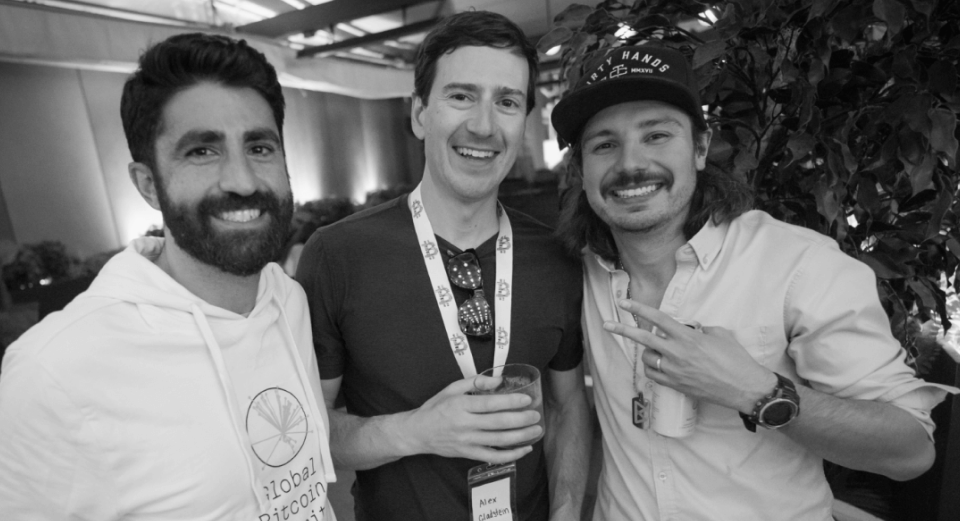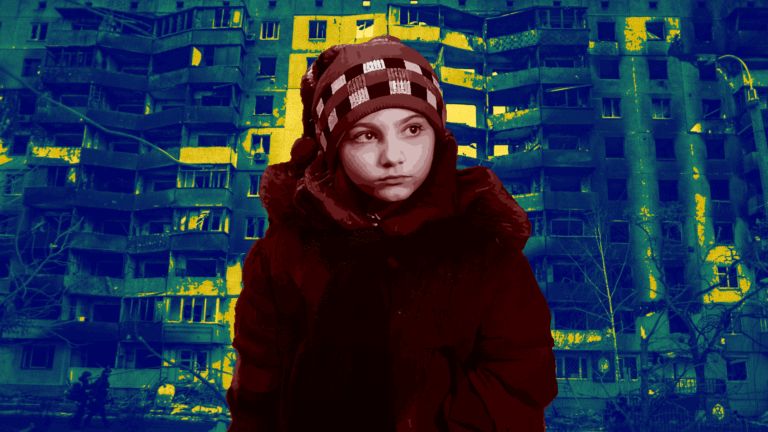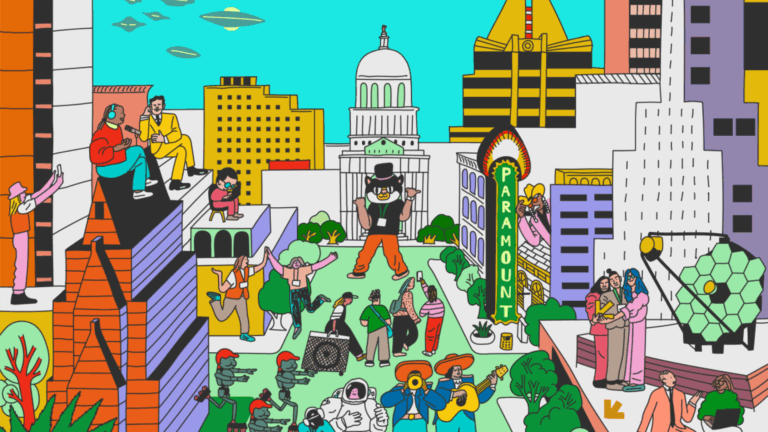X
Reliving some of the brightest moments of the first-ever Global Bitcoin Summit, hosted by the Human Rights Foundation and Bitcoin Park.
In the heart of Nashville, Tennessee, something extraordinary unfolded: the inaugural Global Bitcoin Summit.
About the Global Bitcoin Summit
- Sept. 14–16, 2023
- Bitcoin Park, Nashville
The Global Bitcoin Summit was designed to inspire connection and progress in Bitcoin adoption, with the ultimate goal of promoting financial freedom for the billions of people who lack it today. The Summit brought together more than 100 Bitcoin community leaders, software developers, NGO adopters, activists, human rights defenders, and educators from over 55 countries and six continents, with a special focus on leaders from difficult political climates. Over three days, delegates shared their victories and challenges while building Bitcoin communities and driving Bitcoin adoption. With too many highlights to do justice to them all, this summary piece is organized according to the themes of the Summit and features three speakers within each theme.
The Global Bitcoin Summit
Oct 20, 2023
Key Highlights of the Global Bitcoin Summit
The Global Bitcoin Summit started with an interview between Alex Gladstein, the chief strategy officer at the Human Rights Foundation, and Berta Valle, a Nicaraguan human rights defender.
For two years, she fought for the freedom of her husband, Félix Maradiaga. After announcing he’d run for the Nicaraguan presidency, Félix was arrested in 2021 by Daniel Ortega’s regime and held under solitary confinement. Then, in February 2023, he was released, exiled to the United States, and stripped of his citizenship.
Having witnessed just how quickly a government like Ortega’s can arbitrarily imprison you, strip away your identity, and threaten to take your financial wealth, Berta is now on a path to learning about financial freedom. Thanks to the support of the Human Rights Foundation, she attended the Global Bitcoin Summit to learn about financial freedom through Bitcoin.
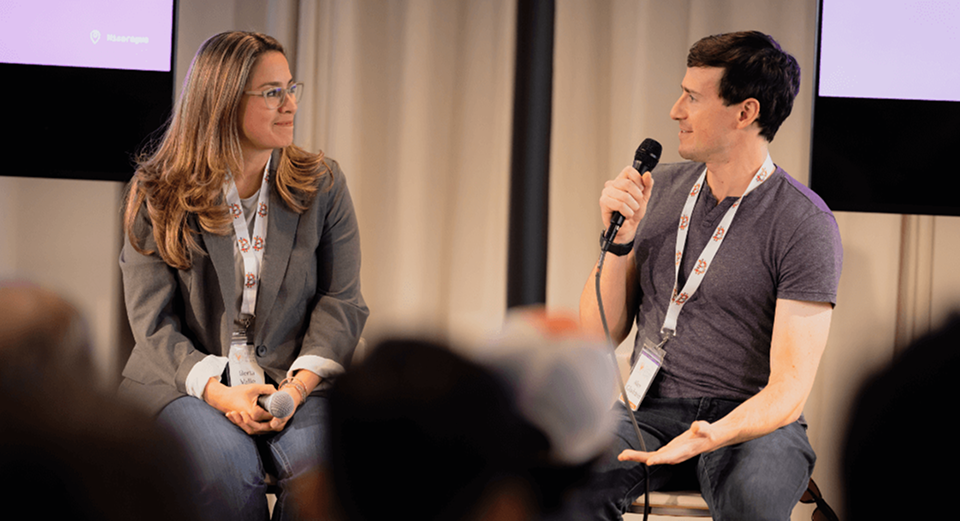
Following this eye-opening interview, the rest of the conference was divided into four key themes:
Conferences are essential to Bitcoin adoption because they create an atmosphere where people can forge new connections, share solutions to problems, and explore business opportunities together. As such, conferences are the backbone of Bitcoin adoption. Here are three examples of Bitcoin conferences taking place this year and why they’re important for the mission of global Bitcoin adoption.
Africa Bitcoin Conference, with Farida Nabourema
By 2050, it is expected one in four people in the world will be African, according to Farida Nabourema, human rights defender and democracy activist. With many African countries falling into the hands of authoritarian rulers who limit their constituent’s political freedoms, restrict their civil societies, and abuse their human rights, finding solutions to circumvent the abuse of governmental power, censorship, and financial repression will be critical. Bitcoin may play an important role in protecting Africans’ right to privacy, private property, and freedom. But to get there, we need the help of conferences like the Africa Bitcoin Conference, which hone in on the region’s most pressing issues and spark solutions that lead to the continent’s financial freedom.
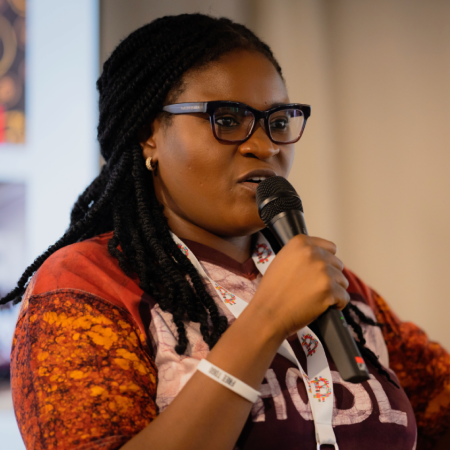

By supporting the Human Rights Foundation, you are supporting struggles for liberation, struggles for justice, struggles for peace, and struggles for freedom across the globe. And this freedom is not just political freedom. It is also economic freedom. It is monetary freedom. It is financial freedom. And most importantly, it’s the freedom to just be as humans
Indonesia Bitcoin Conference, with Dea Rezkitha
SatsConf, with Lucas Ferreira
DREX, Brazil’s central bank digital currency (CBDC), promises to increase financial inclusion. But some are weary of such promises. For them, CBDCs can make it easier for banks to freeze or seize assets, apply restrictions, or set spending and expiry dates on money. This is why Bitcoin education in Brazil is important.
Fortunately, Lucas Ferreira, Co-Founder of Vinteum, alongside Carol Souza and Kaká Furlan, Co-Founders of Área Bitcoin, are focusing on Bitcoin education and adoption in Brazil by:
1. Hosting SatsConf, the biggest Bitcoin-only event in South America (São Paulo, Brazil).
2. Recruiting more South American developers through Vinteum, a nonprofit Bitcoin research and development center dedicated to training Bitcoin developers in Brazil and the wider Latin American region.
3. Educating Brazilians on the sovereignty properties of Bitcoin through Área Bitcoin, “the best Bitcoin school in the world,” which in an incredible feat over the last four years, has taught 3,000 students and gained 350,000 followers on their social channels.
Evidently, the tug-of-war between CBDCs and Bitcoin continues to play out. But with the relentless education and training efforts of Lucas, Carol, and Kaká, Brazil may well be on its path toward financial freedom.
Other presenters included Anant Tapadia from the Bitcoin for India Conference (Bangalore, India) and Anna from the Baltic HoneyBadger Conference (Riga, Latvia).
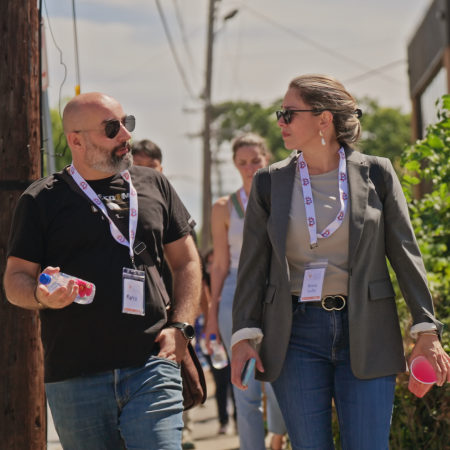

The Human Rights Foundation, it’s been part of leading this conversation and putting these people together. And that is for us as human rights defenders and people that are living in an authoritarian regime, a gift
Theme 2: Bitcoin Education & Best Practices
Education is the catalyst of change. By highlighting the limitations of our existing financial system, the ways money can be a means of control, and by teaching about Bitcoin’s sound monetary properties, people — particularly those living in the margin — can feel empowered to take financial independence into their own hands.
Educating Through Rap Music, with Tip
REALITY
Oct 25, 2023
Educating a New Generation of Afghan Women, with Roya Mahboob
Training African Developers, with Femi Longe
If we want Bitcoin to be for the world, then it must be built by people from all over the world. The problem is that the career path for Bitcoin development is unclear to many people, especially for those in less developed economies like Africa. This is an issue that Femi Longe, entrepreneur, came to talk to us about and one he hopes to solve with ₿ Trust Builders, a comprehensive engineering program designed to train the next generation of open-source Bitcoin and Lightning developers in Africa. To date, ₿ Trust Builders has received over 1,700 applications from more than 420 developers, and trained 24 fellows from 42 African countries. They’ve also held BitDevs meetups in five African cities, including Nairobi, Lagos, Kampala, Abuja, and Accra. In short, they’re equipping African developers with the right skill set to build and innovate on the world’s most global, open, and secure monetary network.
In addition to hearing from Tip, Roya, and Femi, we had the privilege of learning from other brilliant educators, such as Lisa Neigut (Nifty Nei) of Base58, Ben Perrin of BTC Sessions, Adam Nili of Mi Primer Bitcoin (My First Bitcoin), Anita Posch of Bitcoin For Fairness, and Carol Souza of Área Bitcoin. It was uplifting to hear of their unique ways of educating their local communities.
Theme 3: Bitcoin Circular Economies
Bitcoin circular economies create a free market where everyone can trade any product or service (food, jobs, and housing) for bitcoin. They allow people to engage in frictionless and censorship-resistant peer-to-peer transactions, even when living under dictatorial regimes. Here are three Bitcoin circular economies that transformed their communities when they adopted bitcoin as sound money.
Hope in El Salvador, with Roman Martínez (Chimbera) & Mike Peterson
With 70% of Salvadorans lacking access to traditional banks, the beach town of El Zonte (in El Salvador) serves as a striking example of Bitcoin’s potential to bank the unbanked.
Thanks to the nonprofit organization, Bitcoin Beach, residents of El Zonte learned about bitcoin and began using it to pay for various goods and services, from their water and electricity bills to food purchases. One inspiring story featured Ismael, a young lifeguard who, thanks to bitcoin, could buy his first home — a dream that would have previously been out of reach. He now spends the majority of his time teaching others about Bitcoin.
El Zonte’s success later influenced El Salvador to adopt bitcoin as a legal tender. Beyond its local borders, it set a global blueprint for Bitcoin-driven circular economies.
DARE TO DREAM (A story from El Salvador) ...
Apr 8, 2022
Reviving Local Communities in Costa Rica, with Lee Salminen
Inspired by the success of El Zonte’s circular economy, Lee Salminen, Rich Scotford, and Prem Govinda united to create Bitcoin Jungle, “an open-source community built on Bitcoin.” Their vision? To educate Costa Ricans about bitcoin and make it a medium of exchange while fostering a spirit of giving back.
Lee unveiled three fascinating facts at the Summit. Over 5,000 individuals and 200 businesses have used the Bitcoin Jungle wallet, facilitating over 100,000 transactions. They’ve also raised 2.5 bitcoin, which they channeled toward providing clean drinking water for local schools, transportation for residents, and food and water for migrants traveling through communities.
Bitcoin Jungle stands as a testament to the transformative power of Bitcoin, not only in creating a unified financial ecosystem but also in revitalizing and giving back to local communities.
Building a Circular Economy in a South African Township, with Hermann Vivier
To help take children off the streets of an impoverished South African township, Bitcoin Ekasi, an education center, partnered with a surf school, “The Surfer Kids.” Together, they teach 60 kids how to surf, gain confidence, make their own financial decisions, and see their potential beyond the township.
They reward students and pay their 11 staff members in bitcoin. The students and teachers can then spend their bitcoin at 13 shops that have been on-boarded onto Bitcoin, including grocery stores, barbershops, car wash, take-away restaurants, mechanics, and more. Without Bitcoin, kids from the township wouldn’t have easily been able to open a bank account and buy goods and services, let alone tap into a global, open monetary system.
It’s encouraging to see the most vulnerable populations — like children from South African townships — being equipped with bitcoin.
Lekker Feeling | A Bitcoin Ekasi Story
Jul 19, 2023
We also heard from other inspiring leaders, like Florin Hilbay, who is merging Bitcoin adoption with missionary work in the Philippines, Zussel Ramos of AmityAge (Honduras), and Piccolo of BOB Space (Thailand). It’s exciting to see Bitcoin circular economies sprouting in all corners of the world.
Theme 4: Workshops
We had the opportunity to follow our curiosity through various workshops. Whether we wanted to learn more about adoption, community banking, or do a technical dive-in, there was a bit of everything to satisfy delegates’ curiosity. Below are three examples of the immersive workshops delegates were privy to.
Bitcoin LARP (live-action role-playing), with Nifty Nei
The Bitcoin LARP was a classroom-sized group activity and team-building exercise that taught delegates about how Bitcoin works. Groups of three to five people teamed up to become a “Bitcoin node,” a computer that runs the Bitcoin software. Delegates created Bitcoin transactions, connected to other nodes, sent their transactions around the network, and tried to build a block with a winning hash.
It was a fun way to learn about transactions, decentralized networks, and Bitcoin mining. Whether attendees were new to Bitcoin or were seasoned Bitcoiners, everyone learned something new in this dynamic workshop.
Bitcoin Adoption in Latin America, with Dulce Villarreal
Latin America has a youthful population that is digitally savvy and technically proficient, yet they’re underserved in employment and financial opportunities. Seeing this as an opportunity that Bitcoin can help solve, Dulce Villarreal, Founder and Bitcoin Educator at Libreria de Satoshi, asked delegates this sky’s-the-limit question: If you had all the tools and resources, what would you do to fix the problems and challenges of Bitcoin adoption in your country?
Here’s a short list of their answers:
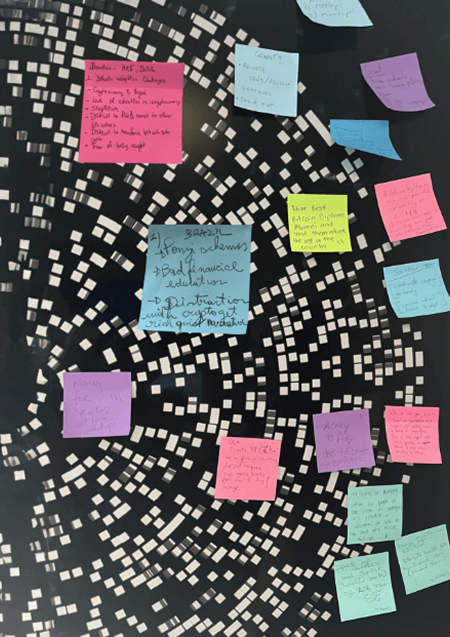
Starting a Bitcoin market for physical goods, nationwide education on financial literacy, paying content creators and national brands to produce Bitcoin education on their social platforms, training activists, making bitcoin donations to civil organizations protecting human rights, funding developers to attend conferences, and investing in entrepreneurs solving local issues through Bitcoin.
There is a common thread underpinning these answers: the need for more education. There is still a lot of work to be done in this area. The great news is that we have grants (like the Human Rights Foundation Bitcoin Development Fund and OpenSats) contributing to these initiatives.
Scaling the Global Bitcoin Community to Billions, with Elizabeth Stark
Delegates who participated in this workshop answered one question posed by Elizabeth Stark, CEO and Founder of Lightning Labs: What is one challenge and one opportunity you see with Bitcoin adoption?
Below are a few examples from the extensive list of answers.
Challenges: A lack of understanding about money/Bitcoin, a disconnect between builders and users, developers/entrepreneurs fearing their government coming after them, and a lack of regulatory clarity interfering with Bitcoin innovation and adoption.
Opportunities: Economic empowerment of marginalized communities, the ease, speed, and low cost of cross-world remittances, UI/UX improvements to Bitcoin wallets and apps, making it easier to interact with Bitcoin.
These interactive workshops created a safe space for honest and intentional conversations about the state of Bitcoin adoption and the role each of us can play in improving it. If anything, delegates left the workshops feeling hopeful about the future of Bitcoin adoption.
In addition to these thrilling workshops, delegates were also invited to learn from Roy Shenfeld on “What Features Do NGOs Want?”, Anna Chekhovich on “The Case of Alexei Navalny,” Gabriel Shipton on “The Case of Julian Assange,” Nick Neuman on “Collaborative Custody,” Amiti Uttarwar on “Building Bitcoin,” Paco De La India on “Discussing Bitcoin Adoption,” and Thomas Mills on “Merchant Onboarding.”
Summary
Beyond the inspiring speakers and learning opportunities, delegates were invited to scenic walks around the venue, networking opportunities over meals, and gifted thoughtful memorabilia to the first-ever Global Bitcoin Summit.
More importantly, the Global Bitcoin Summit showcased the global Bitcoin community’s strength, diversity, and passion. It served as a reminder that Bitcoin continues to inspire and unite individuals from diverse backgrounds. The Summit’s focus on leaders from challenging political climates highlighted the importance of Bitcoin as a tool for financial freedom and human rights.
Delegates left with a positive and hopeful vision for the future and a shared ambition for a more inclusive financial future for all.
